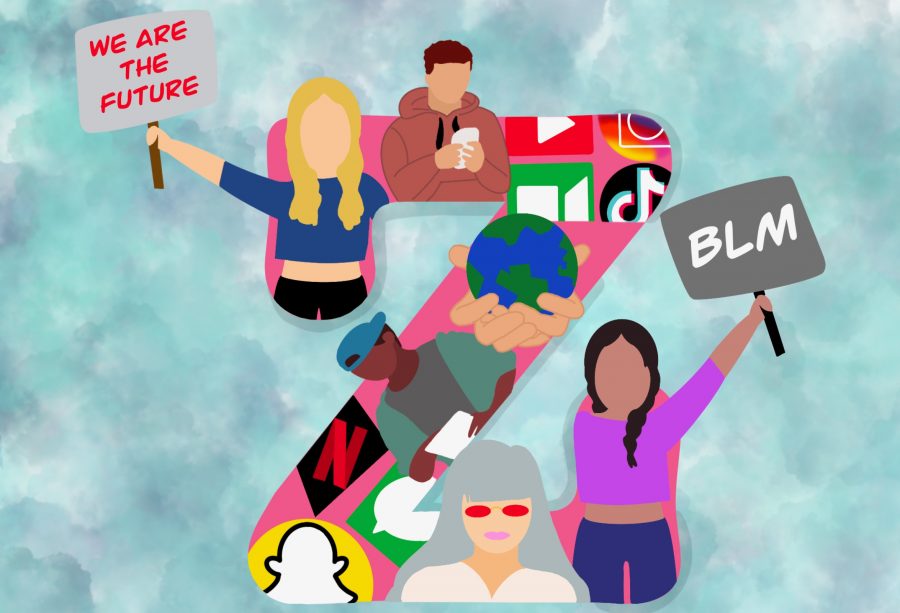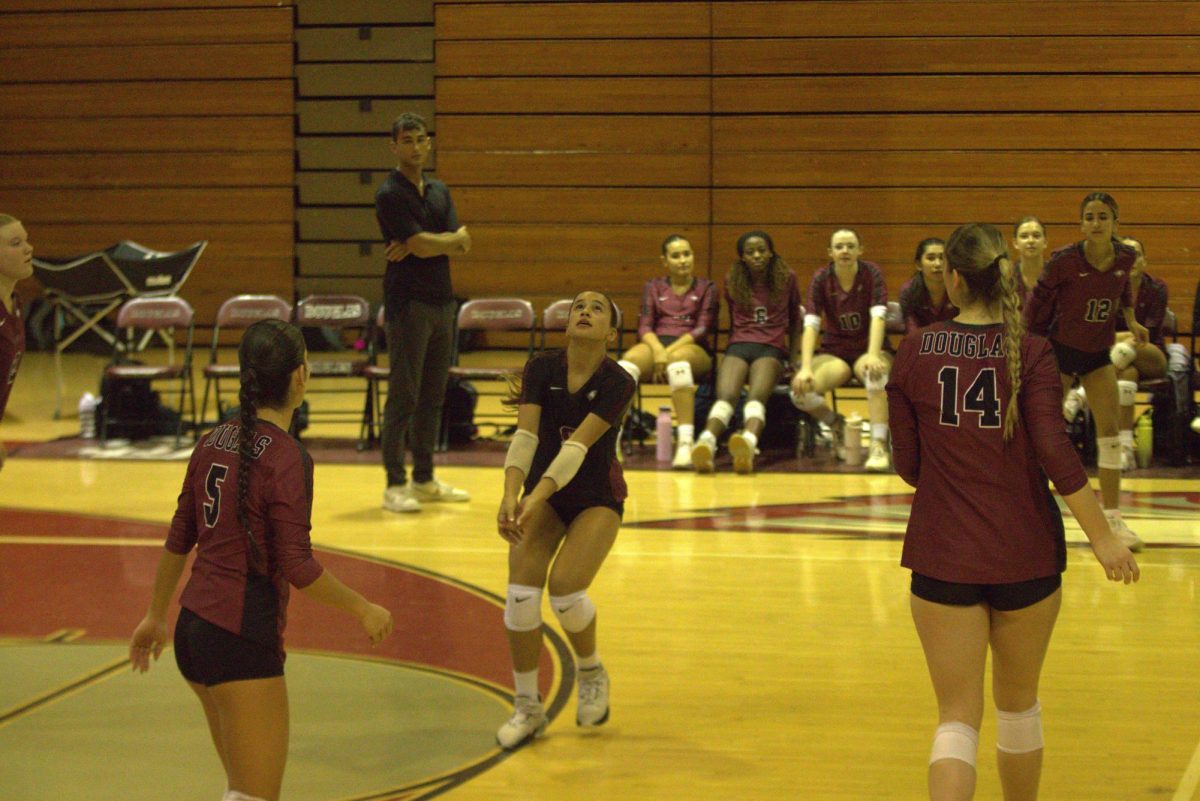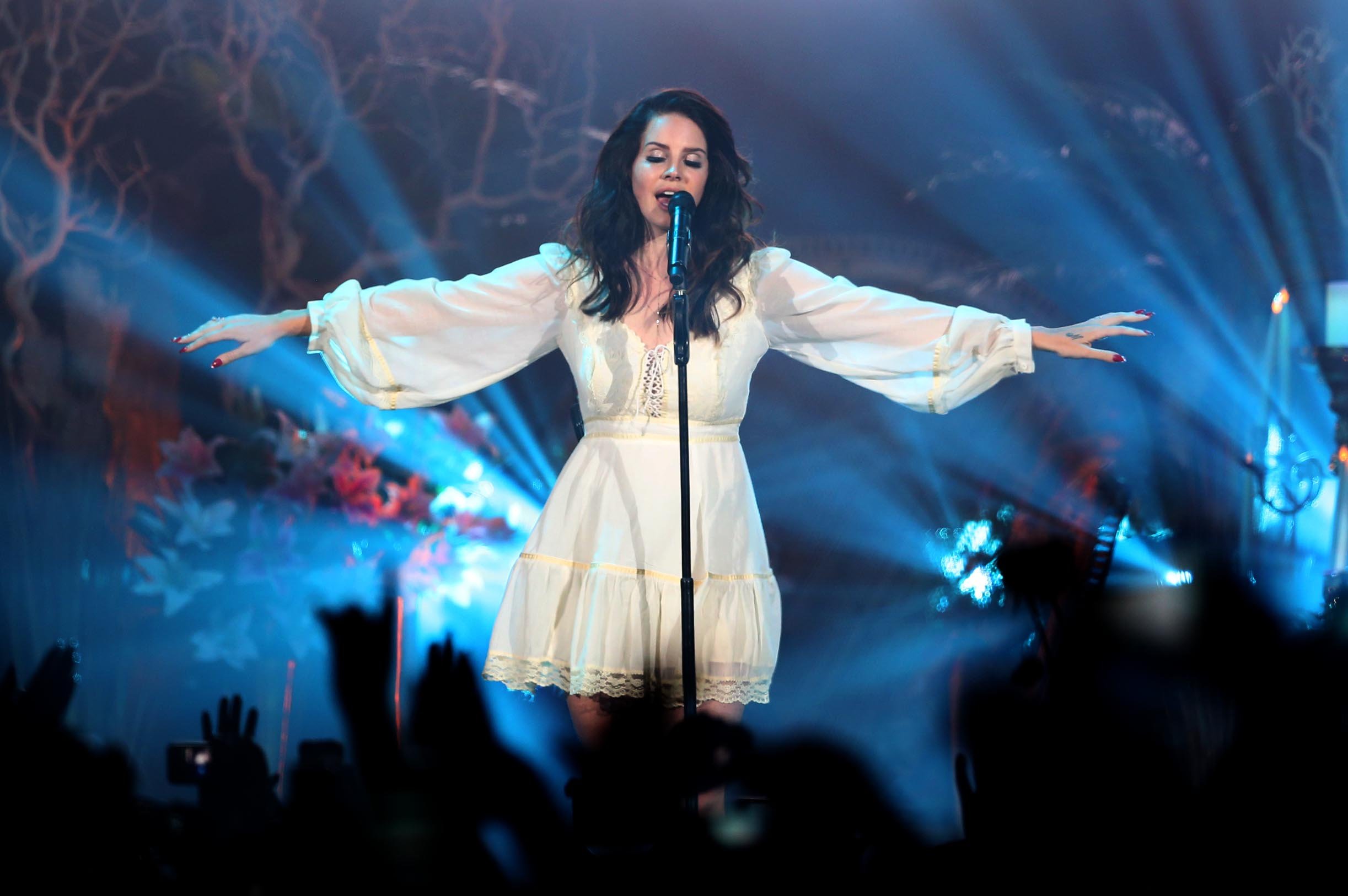Generation Z solidifies its legacy as not only the largest, but the most culturally diverse generation devoted to activism
December 26, 2020
Malala Yousafzai. PewDiePie. Kylie Jenner. One is a women’s education activist and the youngest Nobel Prize winner ever; another is the first solo YouTuber to reach 100 million subscribers and the third is the youngest billionaire in the world. Although these three may have nothing in common, they each play an intricate role on their generation’s impact on the world: Generation Z.
Underneath the surface of the anti-social, overly sensitive and depressed youngsters glued to their phones stereotype, Gen Z has doubled as a generation of social justice warriors that differs from their preceding generations in various ways.
Directly following the formerly MySpace, now Facebook-loving millennials, those that make up Generation Z encompass everyone born roughly between the years 1997-2009.
Age of Activism
This generation has made a name for itself as the generation of young activists; a defining trait is a sense of duty to spread awareness and rid the world of injustice in innovative ways.
“Gen Z is a generation that isn’t afraid to take on challenges: to stand up for something they believe in and have a voice,” junior Marlo Perkins said.
With progressive views on gun reform, gender equality, systematic racism, climate change and LGBTQ+ rights, this generation has spearheaded a multitude of social movements that have warranted global attention.
“I think that Gen Z will be talked about as the generation that changes everything,” junior Julia Danois said. “We unify and get things accomplished. We never let anyone or anything stop us.”
In fact, following the Feb. 14, 2018 shooting, students here at Marjory Stoneman Douglas High School founded March For Our Lives, an organization dedicated to advocating for legislation to prevent gun violence. With alumni Emma Gonzalez, David Hogg, Cameron Kasky, Delaney Tarr and Jaclyn Corin at the forefront of the movement, these overnight activists utilized their voices to give speeches to the press by day and took over social media by night. The organization quickly captured the attention of the entire nation as millions of students began to stage walkouts from their schools in support of MFOL.
“I think Gen Z is quick to turn to activism in the face of trauma because we’ve grown up seeing tragedies left and right,” alumna Jaclyn Corin said. “Our historical context is largely influenced by 9/11 and, in our key adolescent years, we saw mass shootings at movie theaters, elementary schools and more. When the tragedy happened at our school, I felt as if we had an opportunity to change this cycle of violence because we had so many eyes on us–policymakers and regular citizens alike. I felt like that was up to us to expose the realities behind violent tragedies in efforts to raise awareness about policies that effectively stop them.”
A month later, the organization had enough traction to orchestrate a nationwide student-led demonstration in Washington, D.C. for their cause. Taking place on March 24, 2018, over 800 MSD students were either bused or flown out to attend the event on behalf of the MSD alumni, while the remaining student body participated in the Parkland chapter of the movement.
At the event, the founders of MFOL as well as other gun violence victims turned activists from around the country shared their experiences, while celebrities such as Miley Cyrus and Demi Lovato, were invited to perform. A final surprise at the protest was the appearance of civil rights activist Dr. Martin Luther King Jr.’s granddaughter. Currently, this demonstration is one of the largest student-led protests since the protests of the Vietnam War, with approximately 800,000 in attendance.
In 2018, Swedish student Greta Thunberg single-handedly led an international climate change movement called Fridays for Future, which initially began with her staging a walkout at her school, and is now practiced in over 24 countries. Following in Thunberg’s footsteps, students all over South Florida and the nation participated in a global climate strike from September 20-27 in 2019, resulting in one of the largest global protests in history, consisting of over 7.6 million people in 185 countries.
On a more recent note, this age group greatly realized their voice and duty to speak out in the hectic year of 2020. Appalled by the murder of George Floyd on May 25, millions of people turned protesters went to the streets in support of arresting the officers involved in the incident and the Black Lives Matter movement as a whole. Protests were organized throughout Florida, with the demonstration in Fort Lauderdale making national news for the mistreatment of protesters by police. Various MSD students and alumni were in attendance. In Coral Springs and Parkland, MSD alumnus Kadeem Rowe orchestrated a solidarity walk beginning at the school and ending at Coral Springs City Hall.
Throughout the next couple of months, protests consistently occurred worldwide, gathering support from countries as far as Japan and Palestine.
“I think the BLM movement receiving support from other countries is a beautiful thing and it is not surprising that people all around the world would support a movement that uplifts people who have been oppressed for so long,” Coral Glades High School senior Melanie Rodriguez said.
Among many bills founded in the effort to terminate police brutality, MSD alumnus Brandon Dasent, alongside activists Joshua Turner and Nupol Kiazolu, founded the ‘B.R.E.A.T.H.E’ bill, which demands action to deconstruct systematic racism.
Although there are mixed opinions on this topic, a poll conducted by the social networking app, Yubo, recorded that 90% of Gen Z Americans support BLM.
“I think that Gen Z is more accepting of differences and did not grow up in a society of more visible racial injustice and stereotypes,” Deerfield Beach High School senior Keyanna Adams said. “I think social media may also have something to do with it as we see these injustices online which provides visual evidence of it, or that Gen Z is more susceptible to go with what’s trending. Overall, it all depends on the environment you grow up in and how willing you are to call out inequality.
This generation also dramatically played a role in the 2020 presidential election and evoked the greatest turnout for young adults in decades. Various initiatives were developed across social platforms to encourage young people to vote. A joint TikTok account, @tiktokforbiden, featuring prominent users and celebrities, was organized as part of an initiative to share the importance of voting and to encourage young people to show up to vote. Even vlogger/YouTuber David Dobrik organized a giveaway for a free Tesla available to newly registered voters, in hopes of raising the voter turnout.
Technology in Gen Z
As the first generation to be born into the age of the Internet, smartphones and artificial intelligence, this age group has a rather unique position with technology; they are digital natives. Compared to their parents and grandparents, this generation has grown up with an endless amount of information accessible with simply a click of a button.
This advancement of technology has greatly revolutionized Gen Z’s experience with education as these students grew up gradually switching from the utilization of paper material to digital resources, such as standardized testing taking place on laptops and Promethean boards replacing white boards. Even now, with this generation conducting schooling completely online due to the COVID-19 pandemic, they are experiencing another shift in the direction of a technological based approach to learning.
“From my point of view, technology has had both a positive and negative impact on Gen Z. Positives from technology on our work ethic include being able to connect more easily with people, teachers and friends. We have so many resources that we can use to aid us in school and outside of school,” MSD sophomore Haylen Zabrowski said. “Unfortunately, because technology is at our fingertips and it’s always near us, we tend to get distracted more and procrastinate. There is nothing wrong with taking a break from work, but it tends to turn into a longer period of time for most people which leads to rushing at the last minute. Because of the last minute shuffle, we tend to take advantage of our resources and use them wrongly.”
However, the dependence of technology in the life of Gen Z does not cease with education. Growing up in a digital world, this generation has developed an attachment to their social media profiles and cellular devices. According to Gen Z and Millennial researcher Jason Dorsey, 69% of Gen Zers become uncomfortable being away from the Internet for more than eight hours, while 27% of this demographic feel this discomfort after only an hour.
“I believe [that] Gen Z has an attachment to phones and social media because they want to become more involved in what is going on in the world and what is going on in their phone,” freshman Parker Sanders said. “There’s entertainment on phones and communication. Not having a phone or Internet access would probably make me really lost because I wouldn’t be able to keep contact with my friends, see when plans are or even FaceTime my friends.”
With a majority of their social life occurring within a device, Gen Z is proven to be the most hyper-connected generation. Through social media platforms, teenagers and young adults not only stay connected with their friends and family, but are able to communicate with others from all over the world and build a community. In a survey gathered by Business Wire, 56% of Gen Zers are friends with someone they only know from the Internet.
“Our generation has an easier time relating their interests and making friends online, since we’re so tech savvy,” Coral Glades High School senior Kayla Walters said. “Stranger danger doesn’t feel like a phrase we have to constantly remind ourselves of when we’re in spaces with people our own age, so it’s easier to be trusting of people online especially if you have common interests with them. For me, when I made my first online friend, I found it freeing and fun because we connected so quickly and to this day, four years later, we still talk frequently.”
As social media platforms continue to be heavily utilized in all aspects of Gen Z’s lives, these forums are also often used to bring attention to social justice issues as well as plan protests and demonstrations. This rising generation has founded a new subcategory of activism: digital activism. Both Instagram stories and Twitter feeds are often flooded with reposts raising awareness whenever global social issues come to light. In fact, according to an Irregular Labs survey conducted in 2019, 63% of Gen Zers utilize social media as their main news source.
“I find out most of my news on social media,” MSD senior Dinelise Sierra said. “I don’t really keep up with television news, so I find everything out from Instagram and Twitter.”
Together We Stand
Currently, this generation is the largest, most ethnically diverse in history, accounting for over 27% of the United States population and 20% of the world’s population. However, despite their differences, this tolerant generation has established a sense of unity among them. Even the idea of a generational tattoo, a capitalized “Z” with a horizontal line through it, has been mentioned among Gen Zers via social media.
“I think we all bond over the challenges our generation will have. Our generation has to come together and solve the issues that others won’t or else we won’t have much left,” MSD sophomore Adriana Pena said. “I also think that our differences bring us together. Gen Z can also form connections with each other because many of us have gone through similar situations that have shown us where change needs to be made in our society today.”
Not only does the diversity in this age group play an enormous role in their collective dedication towards civil and social justice, but the incessant impact of growing up in the United States post 9/11 on these young adults and teenagers has seemingly weaved an emotional bond. Granted their early access to technology, and in turn, constant exposure to politics and world events, studies have proven that this generation has suffered from generational trauma and stress the most about social issues.
Mental Health
Ceaseless exposure to gun violence, the deportation of friends and families, police brutality and human trafficking are issues that have plagued this generation, so much so that professionals are granting it the nickname, “The New Silent Generation,” in homage to the original silent generation (1928-1945), in which their childhood was marked by recessions and violence.
“Current events are clearly stressful for everyone in the country, but young people are really feeling the impact of issues in the news, particularly those issues that may feel beyond their control,” American Psychological Association Chief Executive Officer Arthur C. Evans Jr., PhD, said in a statement regarding the latest APA Stress in America survey. “At the same time, the high percentage of Gen Z reporting fair or poor mental health could be an indicator that they are more aware of and accepting of mental health issues. Their openness to mental health topics represents an opportunity to start discussions about managing their stress, no matter the cause.
The conversation regarding mental health has been at the forefront of this generation due to the troubling inclination of people diagnosed with depression, anxiety, PTSD and other mental disorders. In a 2019 study conducted by the Journal of Adolescent Health, it was reported that “the rates depression, anxiety, …and suicide attempts markedly increased [from 2007 to 2018], with rates doubling over the period in many cases.”
Whereas in previous generations, mental health was not readily explored nor talked about freely, Gen Z heavily aided in shedding light on the importance of mental health and destigmatizing seeking help in the form of therapy and medication. Support groups, online chat rooms and hotlines, as well as features on social media bringing attention to comments, actions or posts that may be concerning are now normalized. Talking about one’s mental health and issues is now seen as an act of strength that can connect them with countless others going through the same struggles.
With Gen Z’s understanding of mental health and acceptance of speaking about one’s emotions, this generation is predicted to change the face of parenting. Studies have shown that this generation is significantly less likely to spank their children as a form of punishment, but rather emphasize a communicative approach when confronting a child’s behavior.
“Generational trauma attributes to families as it inputs negative repeated patterns with behavior and beliefs on being a parent,” MSD senior Ethan Tong said. “One example would be hitting kids as discipline and whether or not it is okay.”
According to Parents.com, as 26% of Gen Zers are in therapy, they will most likely develop emotional regulation, the ability to effectively maintain control over and express one’s emotion, upon becoming parents and share that trait with their children.
Although the majority of this generation’s inhabitants are not quite adults yet, that has not stopped them from speaking out on social issues and becoming an active part of their communities. From activists to businessmen, Generation Z’s collective values and individual contributions to the world has developed a legacy of change.
This story was originally published in the December 2020 Eagle Eye print edition.










